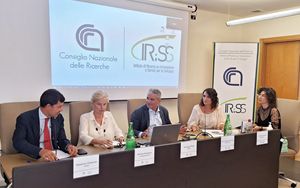(Finance) – Activate identity processes of community and stimulate new and genuine values transitions cultural: cultural heritage can represent a solid ground of cohesion, a factor of stability for communities that are often fragmented or torn apart by conflicts. It is on the basis of this consideration that a Naples a series of seminars has begun with experts, researchers, local animators and public decision makers on the theme “Cultural heritage in transition” which includes 4 meetings between September and November, organized jointly by the CNR IRISS, the Institute of Mediterranean Studies (Cnr Ismed ) and by the Institute of Cultural Heritage Sciences (Cnr Ispc), and financed as part of the action COST “Underground Built Heritage as Catalyser for Community Valorisation” (underground4value).
The recognition and the valorisation of the heritage cultural processes are not automatic and exclude large sections of the population from decisions, it was revealed in the discussion held in the CNR Humanistic Center which saw researchers and experts discussing the different methodological approaches capable of activating local communities towards original reinterpretations of their own heritage.
Second Joseph Peace, researcher at the CNR IRISS, for a community to recognize a cultural heritage as its own, it must be able to interpret it, that is, to create a relationship between the place or historical and cultural object and the framework of values and meanings that the community attributes to him. To create such cognitive and emotional bonds and to make them lasting, in recent years a new discipline has emerged in Italy too: the Interpretation of Heritage. This discipline would have the great potential to activate community identity processes and stimulate new values and real cultural transitions.
The seminar was introduced by Maximum Clementdirector of the CNR IRISS, who highlighted how in recent years researchers dealing with cultural heritage are increasingly called upon to involve and empower communities in heritage processes, as requested by the Faro Convention. The arena of actors who take part in the recognition of values and the activation of valorization strategies is increasingly diverse. There is no shortage, even in the Neapolitan area, of virtuous examples of ‘bottom up’ initiatives which have returned long-forgotten heritage to the local and global community and contributed to activating urban regeneration processes, as in the case of the Catacombs of San Gennaro to the Health district and of the patrimonial community of the Friends of Molo San Vincenzo.
Thanks to both theoretical and experimental contributions, this seminar also reflected on how international organizations are working to stimulate participatory processes for the creation of sustainable local interpretative practices. Introduced and moderated by Renata Salvarani of the European University of Rome, the meeting compared the approach to heritage interpretation, as told by Carmen Granitocoordinator of the scientific activities of Interpret Europa, with that of storytelling, presented by Susana Martínez-Rodríguez from the University of Murcia in Spain.
